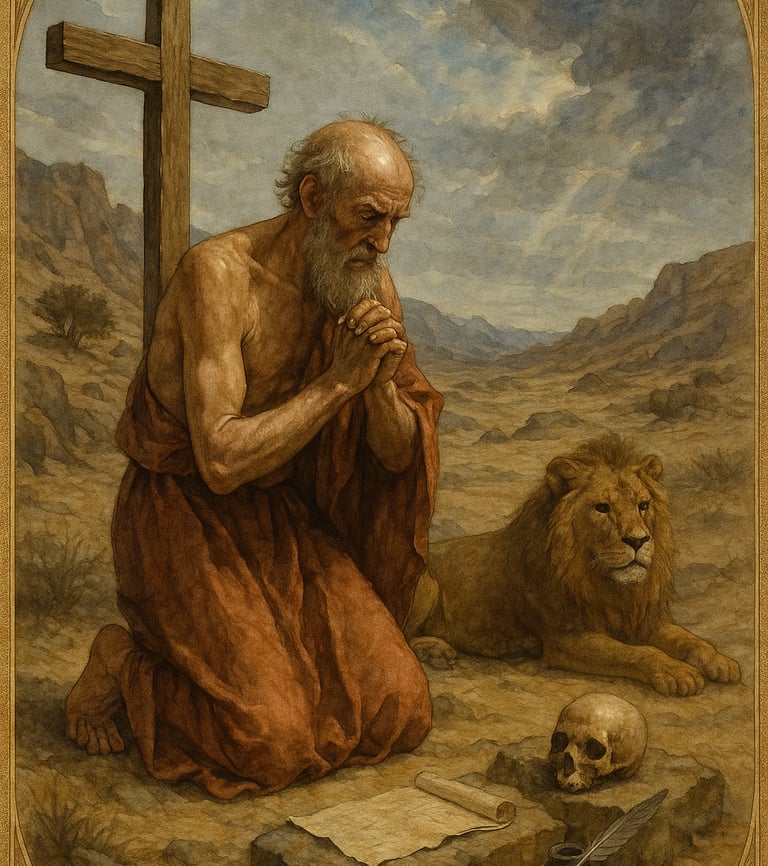Saint Jerome – The Lion of Scripture
Feast Day: September 30 | Patronage: Biblical Scholars, Translators, Librarians, and Students
Halo & Light Studios
10/2/20252 min read


Click Link for a reel of Daily Dose of Saints and Faithful Art:
https://youtube.com/shorts/ak6bgcnzEOM
Fellow Pilgrims in Christ,
Few saints embody the burning zeal for God’s Word as powerfully as St. Jerome (c. 347–420 AD), the brilliant scholar, ascetic, and translator whose labors gave the Church her most enduring biblical text: the Latin Vulgate. Known for his fiery personality and relentless pursuit of truth, Jerome reminds us that study and holiness are not opposed but intertwined, each drawing us deeper into Christ.
Jerome was born in Stridon, on the borders of Dalmatia (modern-day Croatia/Slovenia), during a turbulent time for the Roman Empire. Pagan traditions were crumbling, heresies threatened Christian unity, and the Church needed clarity in doctrine and Scripture. Into this world, Jerome brought his immense talents in languages, rhetoric, and biblical exegesis.
Educated in Rome, Jerome absorbed the finest classical learning but found his true vocation in asceticism and study of Scripture. His journey took him from the desert of Syria—where he lived as a hermit steeped in fasting and prayer—to the heart of Rome itself, where Pope Damasus I commissioned him to revise and translate the Bible.
Jerome’s translation, the Vulgate, was a monumental achievement, drawing from Hebrew, Greek, and Latin to render God’s Word accessible to the Western Church. For over a millennium, it shaped liturgy, theology, and daily devotion.
But Jerome was not merely a scholar locked in books. He was a fierce polemicist, engaging in debates with heretics and even fellow theologians. His letters, filled with both wit and severity, reveal a man utterly committed to the truth of Christ. In Bethlehem, where he settled in later life, Jerome established a monastery and continued his work until his death in 420.
St. Jerome’s life reminds us of the seriousness of Scripture. He famously declared: “Ignorance of Scripture is ignorance of Christ.”
His call challenges us: do we approach the Bible casually, or do we see it as the living Word that draws us into the mystery of Christ Himself? Jerome’s example urges us to combine study with prayer, knowledge with humility, and to recognize that understanding Scripture is not simply academic—it is a path to holiness.
St. Jerome lived during the twilight of the Roman Empire, as barbarian invasions loomed and the old pagan world gave way to Christian Europe. His scholarship helped stabilize the faith at a time when fragmentation and confusion threatened the Church. Just as the empire’s structures were crumbling, Jerome’s work anchored the Church in a text that unified Christians across cultures and centuries.
May we, like St. Jerome, never shy away from the hard work of study, prayer, and defense of the faith. His sharp pen and burning heart remind us that love of Christ must be rooted in His Word, and that every Christian is called to a deeper encounter with Scripture.
St. Jerome, pray for us!


